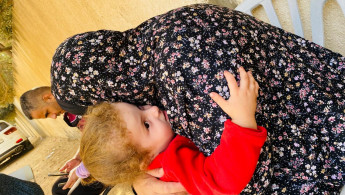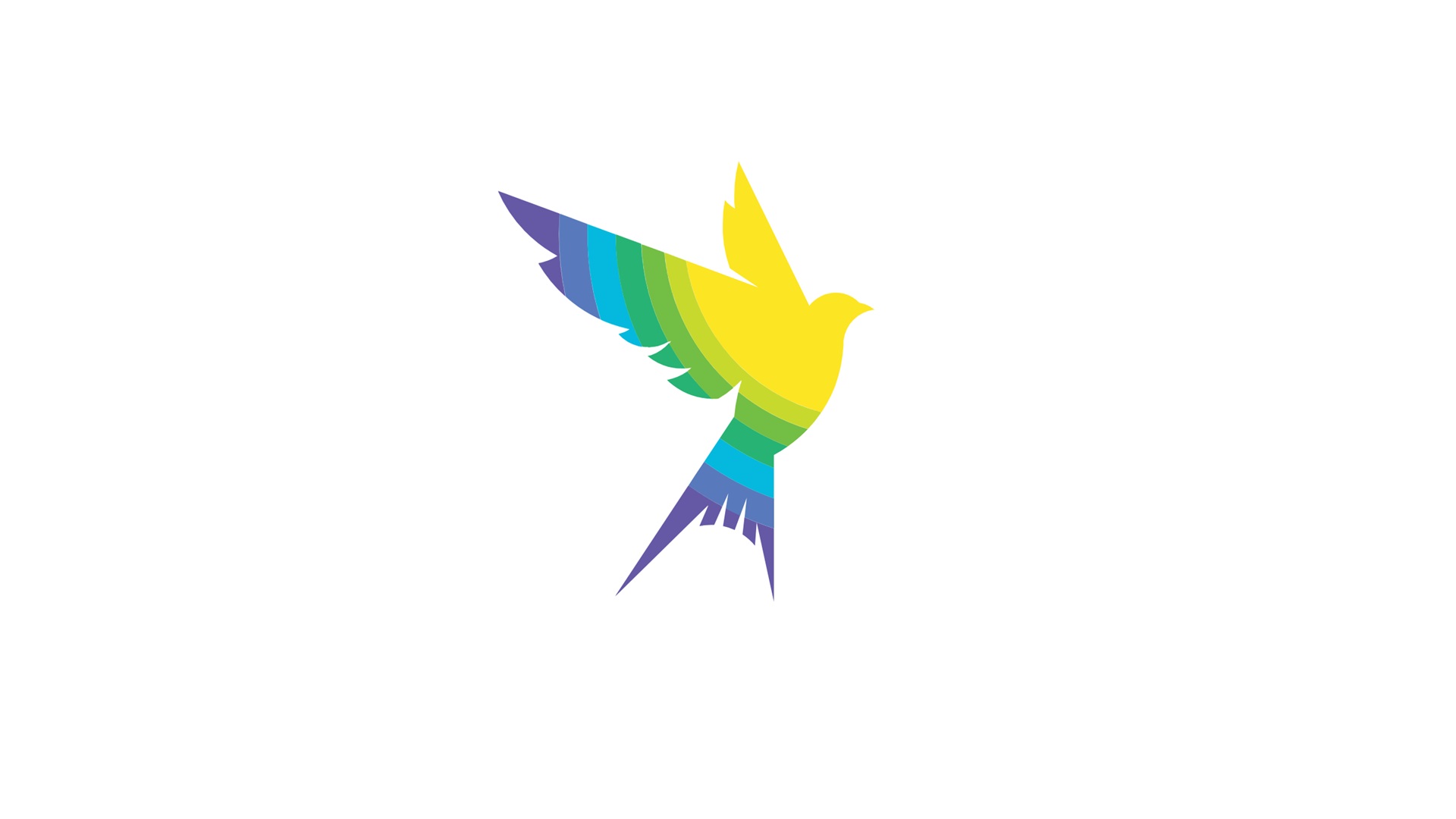From 1948 to 2024, three Palestinian sisters speak of endless Nakba
Dalal, Naima and Amina Nassar are three sisters who lived through a horrific journey of forced exodus, destruction and death since 1948 and today, indicating how endless the Nakba has been for the Palestinians throughout the decades.
The three sisters are Palestinian refugees from Julis in northern occupied Palestine. Their family was forced to flee their town in 1948 to the Gaza Strip, like more than 700,000 other Palestinians, by Zionist militant groups, according to official Palestinian data.
For Dalal, 1948 was the year of the Nakba, when she was forced to walk hundreds of kilometres on foot with her mother and two brothers, Nimr and Naim, to reach the nearest safe place in the Gaza Strip.
"The situation was as if we were experiencing the Day of Judgment (...) Crowds of people escaping from the death on foot and others riding donkeys and camels, while children ran in front of their families as the sound of bullets fired by the Zionist gangs towards us," Dalal recalls to The New Arab.
The 84-year-old mother of six never forgot one scene during that time. She describes how men and women lay dead in the streets, shot by Zionist forces while they were trying to escape. No one managed to save them or know who they were.
"Everyone was trying to survive (...) No one had weapons during the exodus. We were and still are defenceless women, children and helpless elderly people," she remarked.
Before the Nakba in 1948, Dalal said, "We lived a quiet, simple life." She lived in a mud house and her family owned land on which they planted legumes and vegetables. They had a cow from which they got milk for the children and made cheese to eat.
Despite the passage of time, Dalal vividly remembers details of her life with her neighbours and friends, when they used to gather daily to play in front of their houses, and the long walks they all took together to fill some galloons with water.
"I miss farming the land with my mother during the farming seasons," she said. "Sometimes we grew lentils and chickpeas, and in another season, we grew tomatoes, cucumbers, peppers, cabbage, and many vegetables and fruits."
"But," Dalal added, "Everything was destroyed. Our lives became hell after we were forced to flee to the Gaza Strip, where my family lived in the city of Deir al-Balah in central Gaza, sheltering in tents that did not protect us from the harsh winter cold or the oppressive summer heat.
Dalal continued to live the tragic reality with her family in light of the lack of all necessities of life. She recalls, "Living in tents is the height of tragedy, without protection and privacy for you and your family (...) We felt naked in front of each other and felt ashamed all the time, even when we had to relieve ourselves inside tents."
Dalal and her five-member family then tried to deal with the "new difficult reality" imposed on them, believing that they would return to their town, from which they had been displaced, after weeks or months.
But many years passed, and neither Dalal nor any of the Palestinian refugees were able to return to their homes, denied their inalienable right to return.
"For many years, I heard stories from my family about immigration and how happy and stable my family's life was after that, but I did not expect that I would live a catastrophe and know its details intimately until the war broke out between Israel and the Arab countries in 1967," Naima, the 74-year-old middle sister, said to TNA.
At that time, she said, "Internal displacement was imposed on us again; we were forced to move from Deir al-Balah to Mawasi Khan Yunis and stay there during the six days of the Israeli-Arab war in 1967."
She recalls "tens of thousands of people running and fleeing on foot (...) I cannot forget the beating of my heart that was accelerating due to fear of Israeli bullets. And I cannot forget the sights of so many bodies lying in the streets. What I witnessed was terrifying, and I thought we would die."
Naima, the mother of six, elaborated that experiencing the Nakba is not just fear and anxiety for one's self but is also part of fear and anxiety for the Palestinian existence.
"Every time we survived, we insisted on proving our Palestinian presence (...) After the end of the war and Israel's occupation of Gaza, we were forced to live as immigrants inside our cities. Still, the pain inside us is great after we lost many of our loved ones and our lands and watched the Israelis seize our lands and establish settlements," she added.
However, the Palestinians, including the original residents and refugees in Gaza, continued to live their lives and build cities in Gaza, as well as educate their children to encourage a new educated generation to liberate our lands and establish their independent state.
"Over decades, the Palestinians in Gaza succeeded in proving to the world that they are a people who deserve to live," Naima remarked.
Meanwhile, Palestinians persisted in telling the stories of exile and exodus from parents to their sons and daughters, including tales of Palestinian heroes who did their best to defend their homeland.
For many years, Amina, the younger sister of Naima and Dalal, heard such stories from her elderly sisters and mother, Maryam.
These stories, in a way, helped her navigate the emotions and horrors of displacement and catastrophe but in even more difficult circumstances after Israel announced its massive war against the entirety of the besieged coastal enclave in October 2023.
Amina was forced to flee her home on 10 October, hoping to return to it a few hours later. She then fled to Deir al-Balah after learning that the residential neighbourhood in which she lived in Tal al-Hawa, west of Gaza City, had been entirely destroyed by the Israeli army.
After spending two months in a house in Deir al-Balah, the neighbourhood, she fled with her family of 25 members to was hit by an Israeli strike. Luckily, she had minor wounds, but she was displaced again to the city of Rafah in the southern Gaza Strip, along with more than 1.5 million Palestinians.
However, the Israeli army targeted nearby homes, forcing them to move to tents on the city's outskirts.
"As soon as I entered the tent, I remembered the catastrophe that had struck my fathers and grandfathers, so I cried bitterly (...) I held back my tears throughout the period of Israel's wars, but this time, I could not control myself because I feared that I would not return to my city again," the 61-year-old mother of eight said to TNA.
"I lived through the same difficult conditions that my family experienced in the past. I felt like it was an endless form of suffering," she added.
Several weeks later, as Israel threatened to launch a large-scale military operation on Rafah, Amina was forced to flee again to the city of Deir al-Balah in the central Gaza Strip.
"The most difficult experience a person may go through is displacement and homelessness in the absence of any necessities of life such as water, food, electricity and food. What made the matter worse is that no one can know their fate, whether they will live or die," Amina says.
In an attempt to save herself and her family, Amina managed to escape to Egypt with only three of her children, hoping that they could help bring the rest of the family, especially Amina's grandchildren.
"We cannot save them from a life of exile and exodus, but at least we can try to save them all from death," she added.






 Follow the Middle East's top stories in English at The New Arab on Google News
Follow the Middle East's top stories in English at The New Arab on Google News

![A group of Palestinians, foreign and Israeli activists gather to participated in an olive picking event on the land in the town of Battir, which is under threat of confiscation by Israel in Bethlehem, occupied West Bank on 8 November 2024. [Getty]](/sites/default/files/styles/image_330x185/public/2182930803.jpeg?h=199d8c1f&itok=__0LgGsa)
